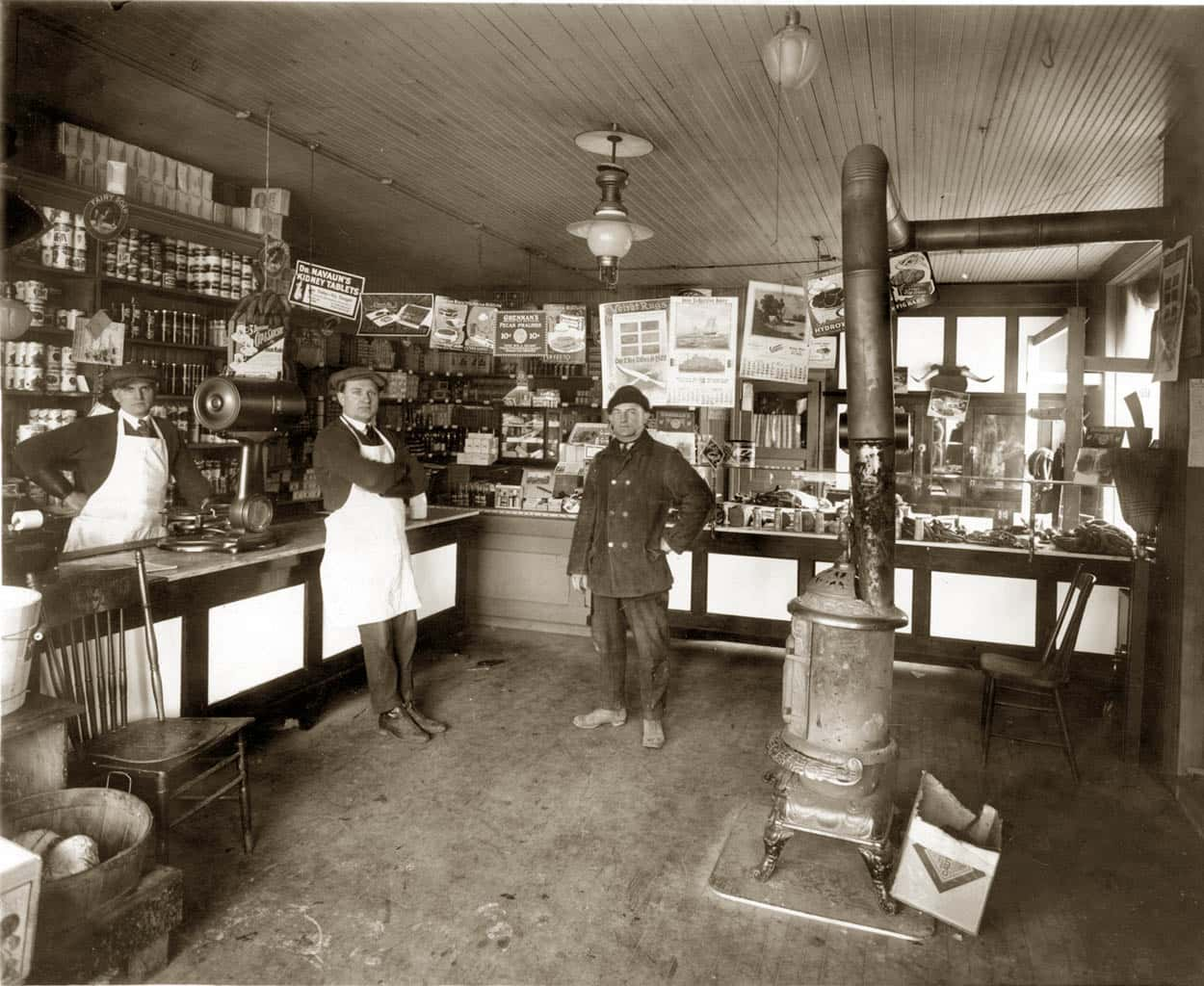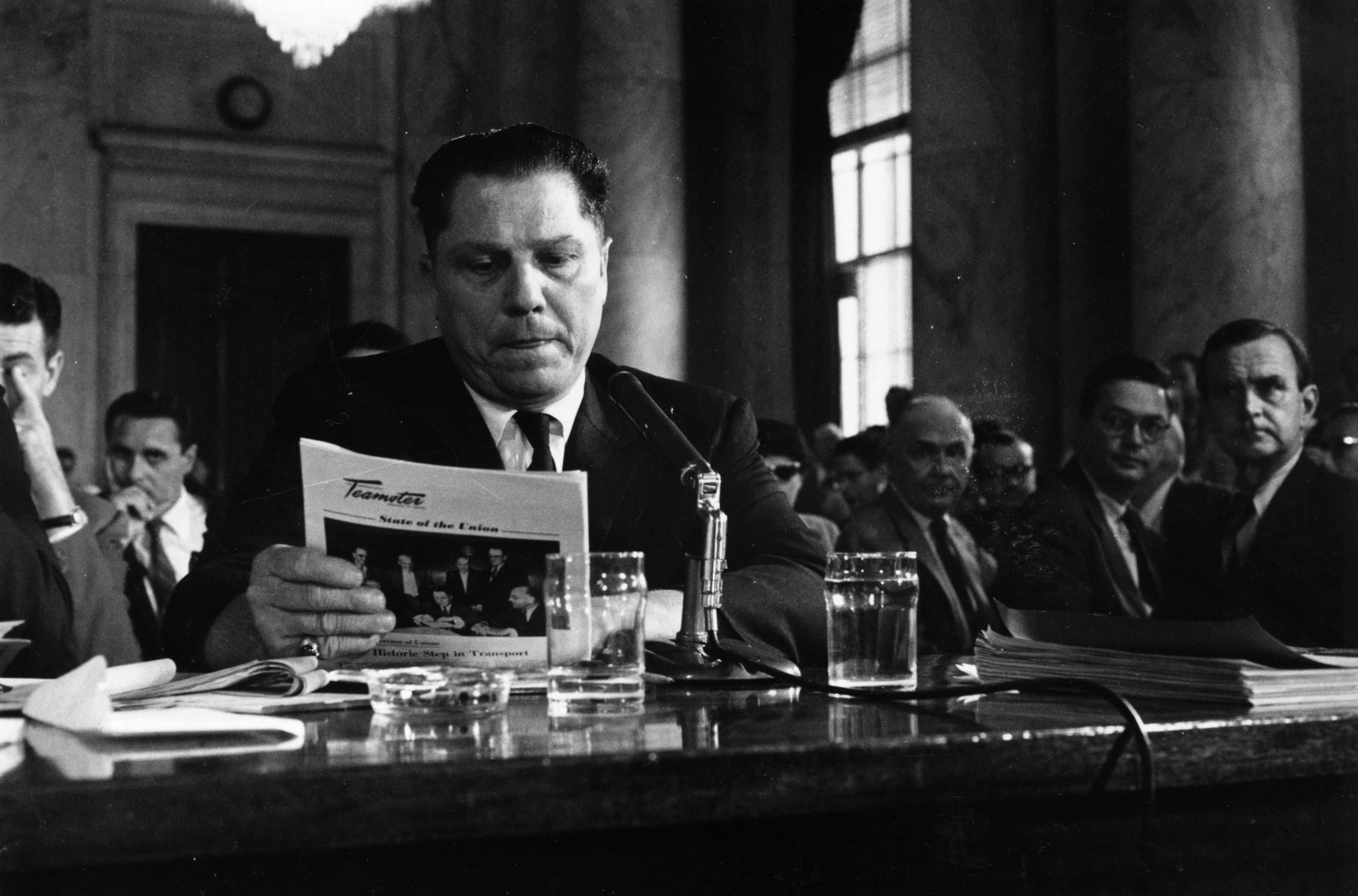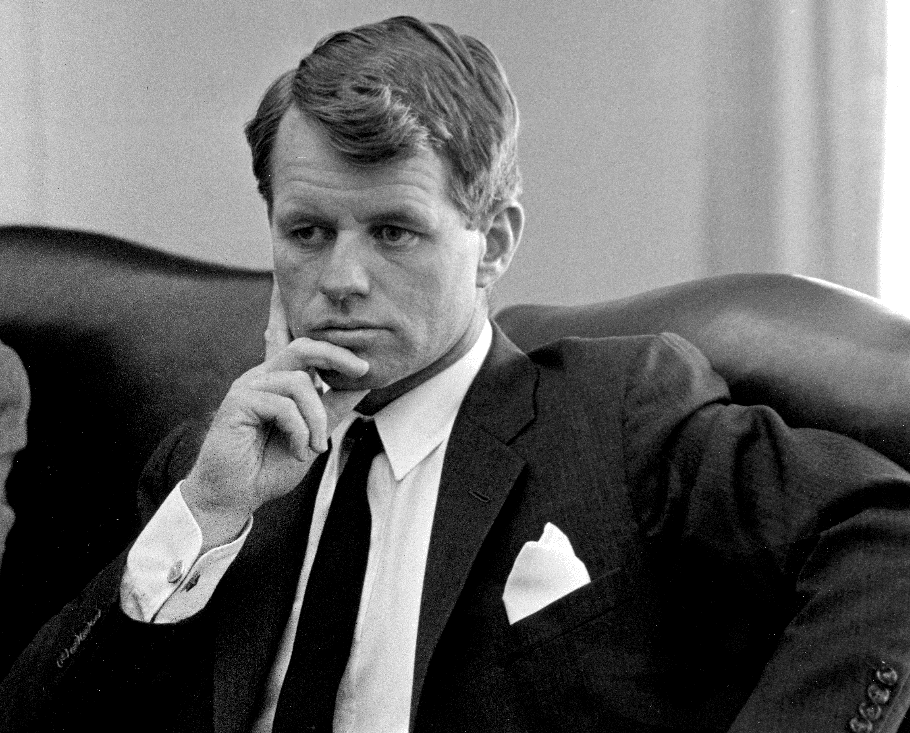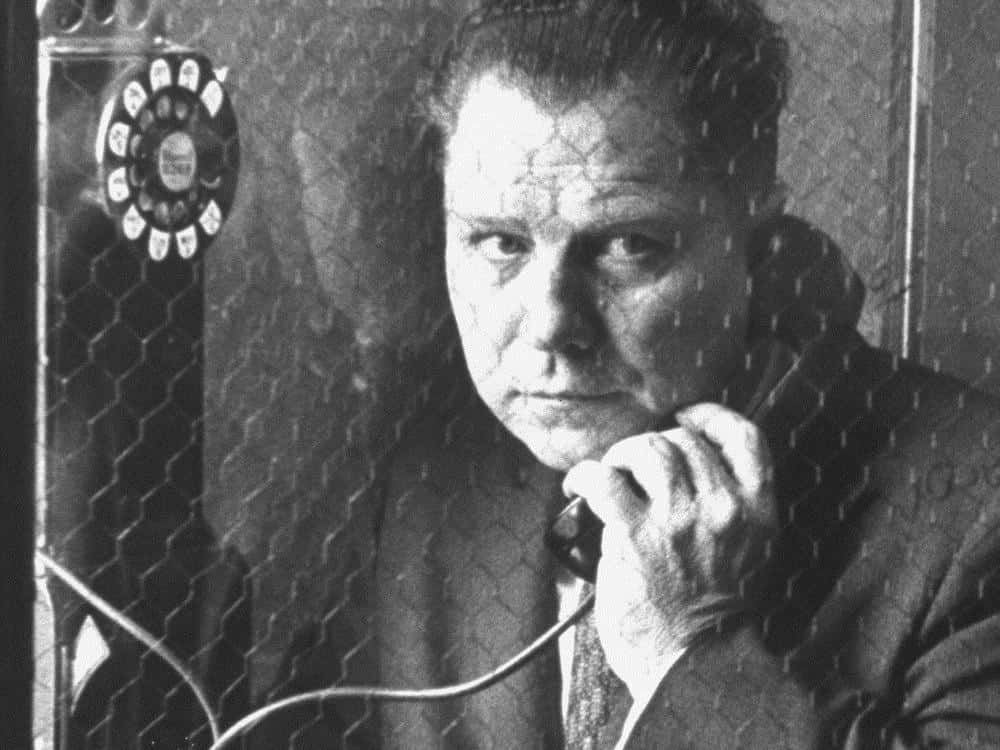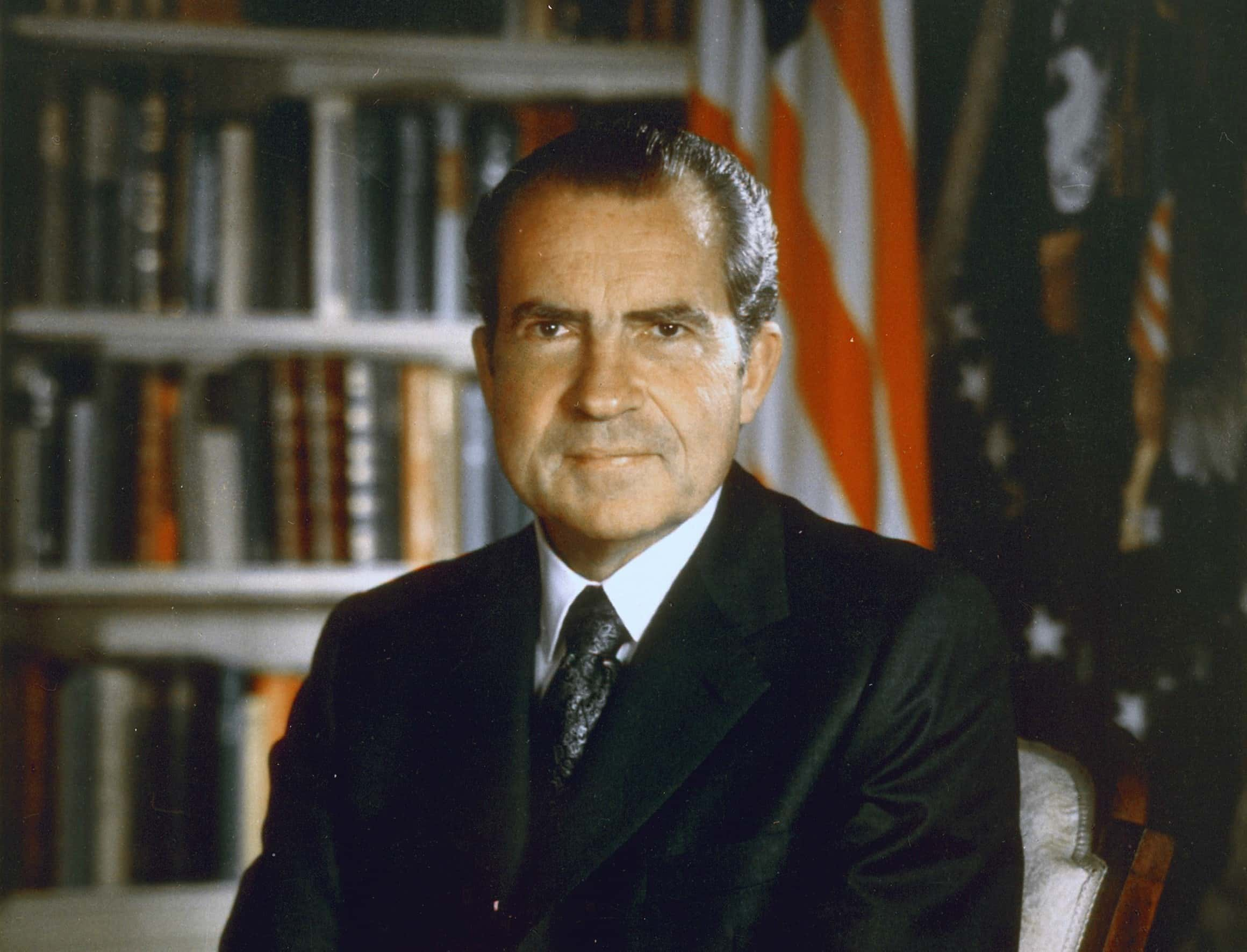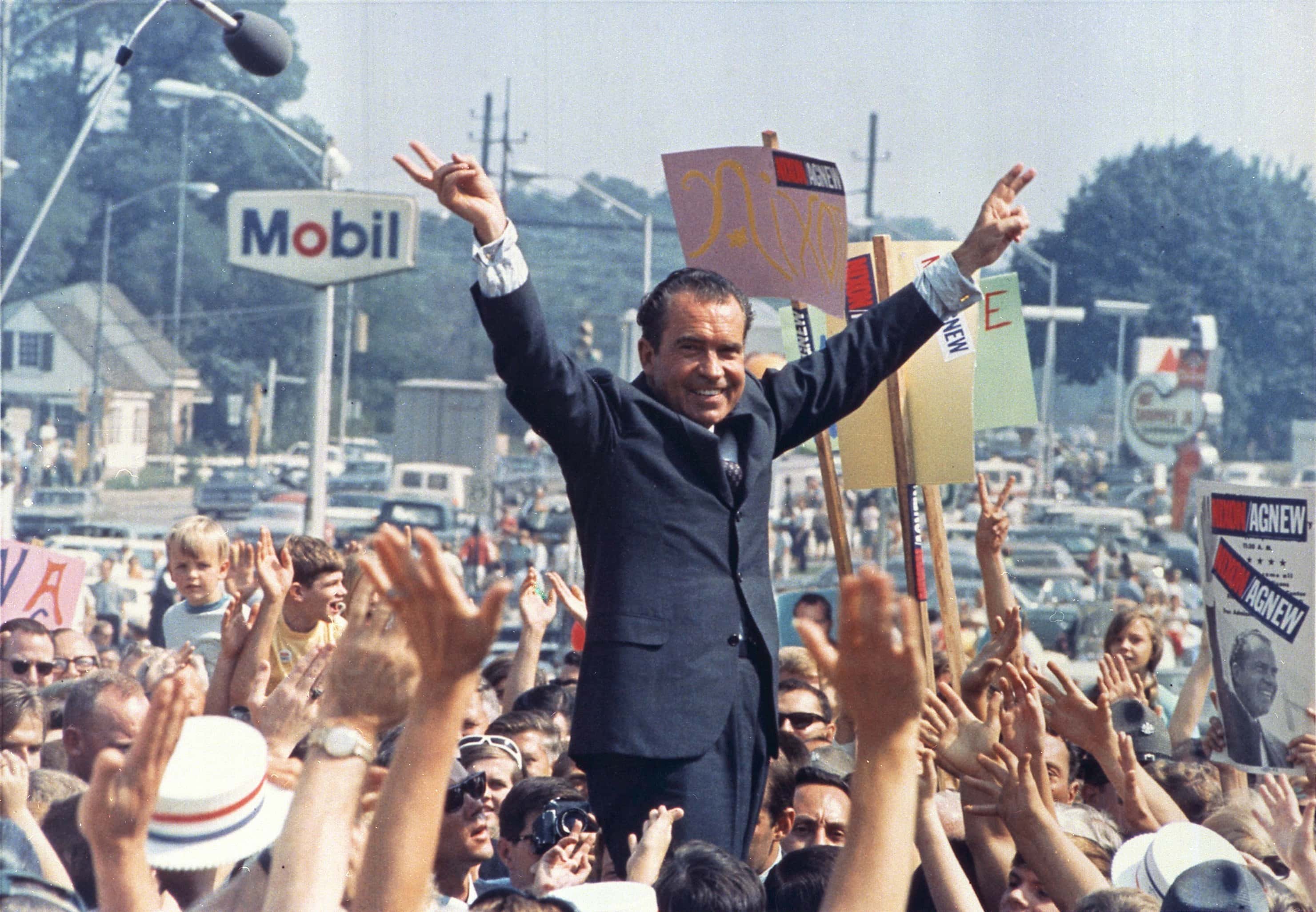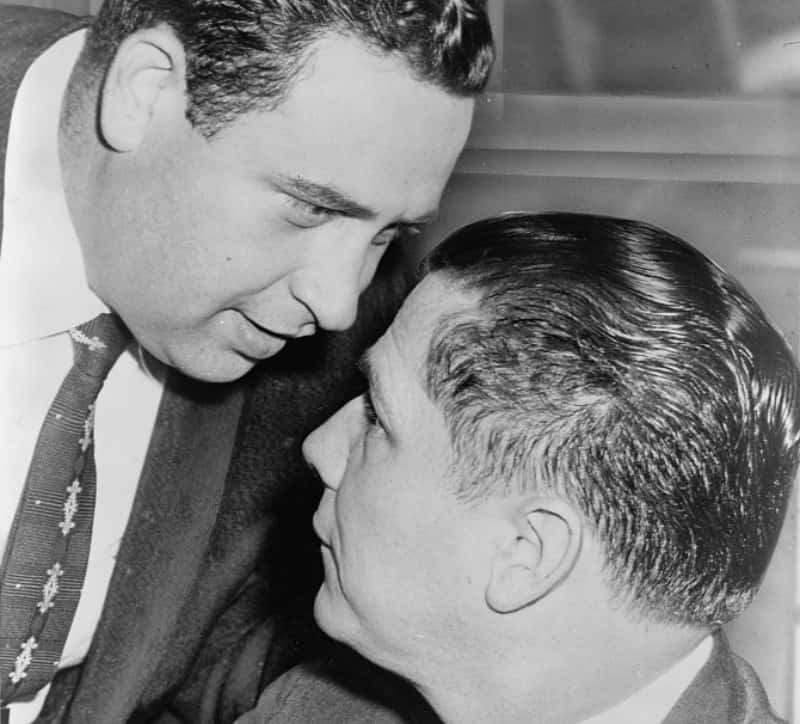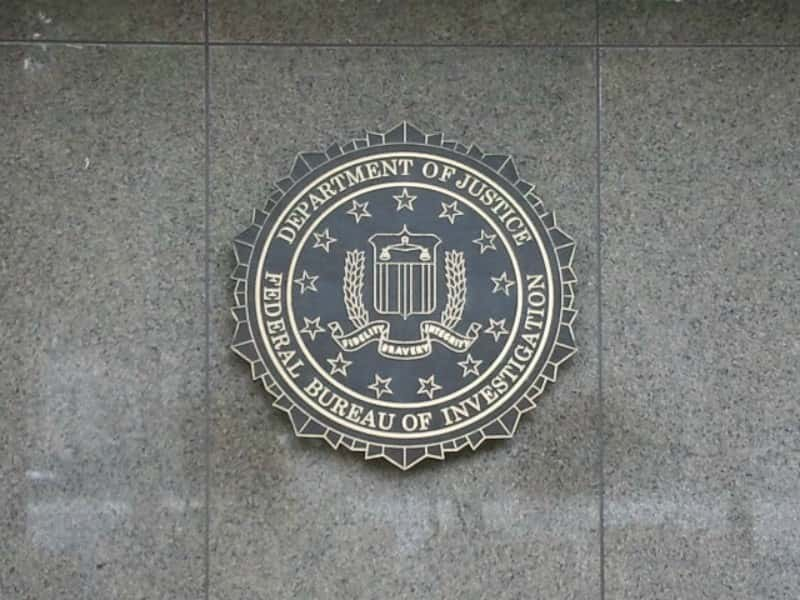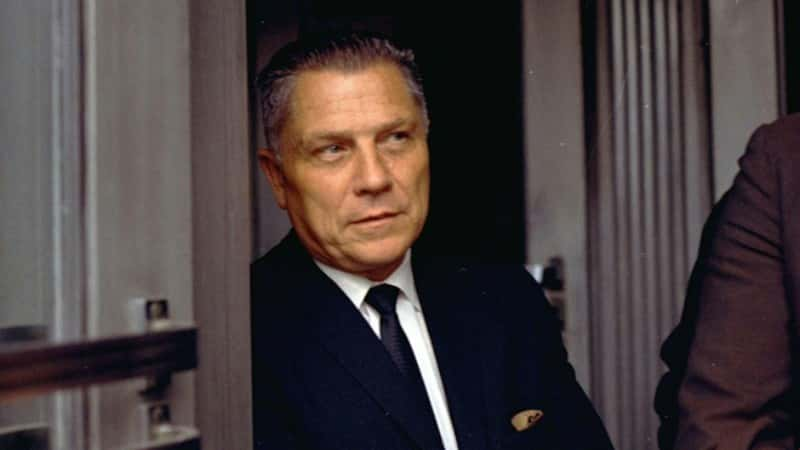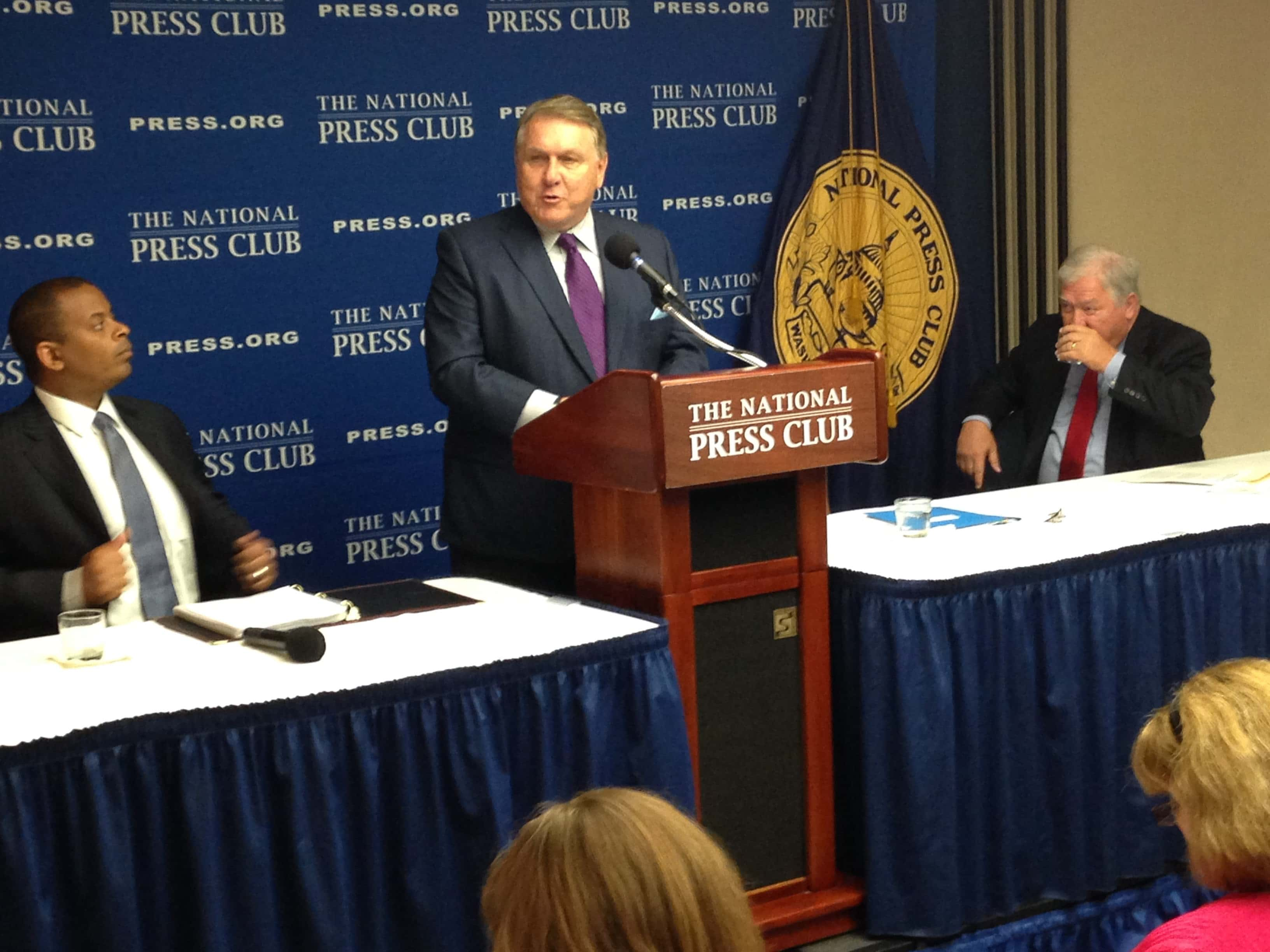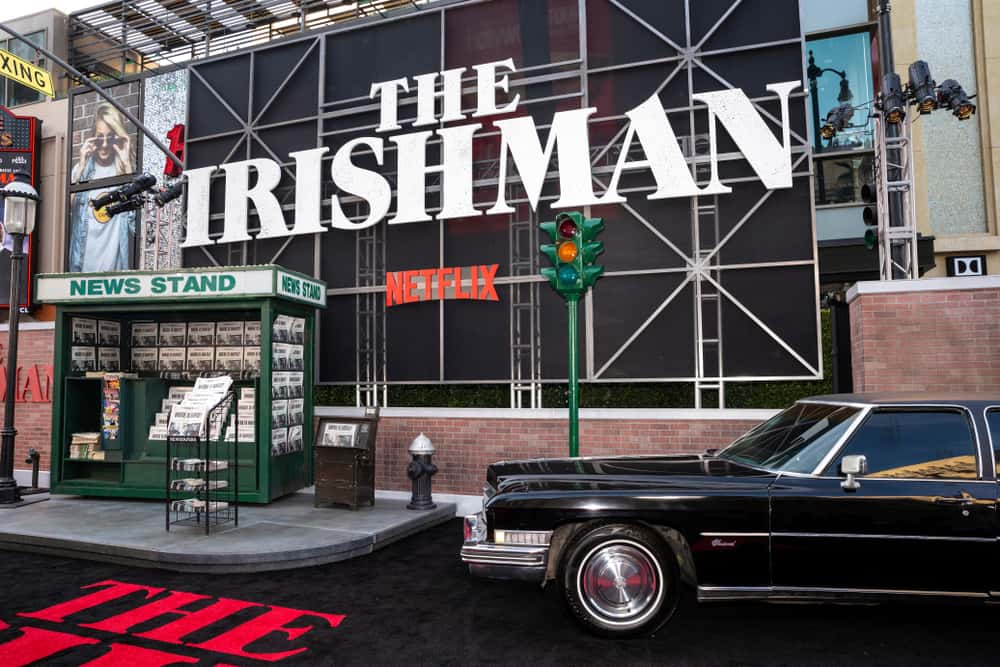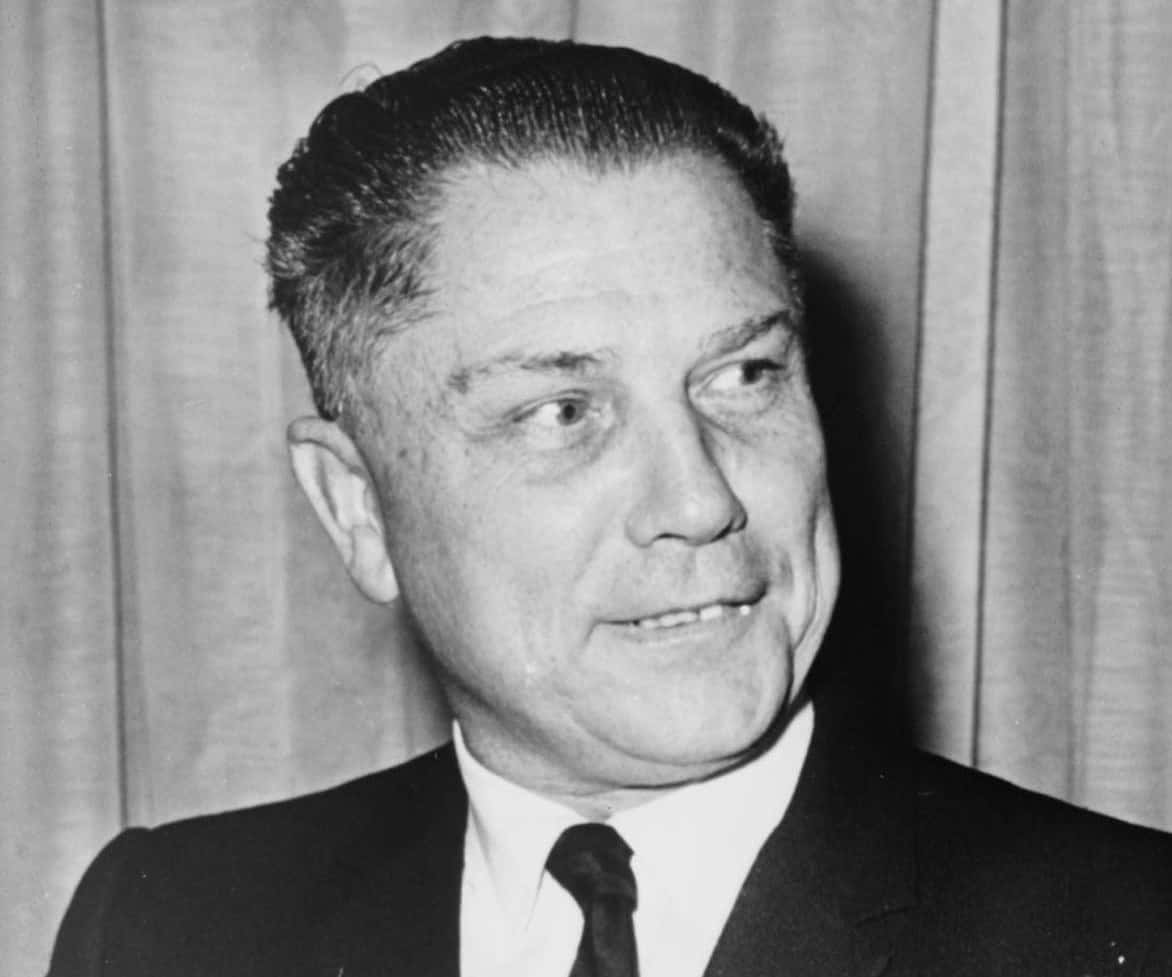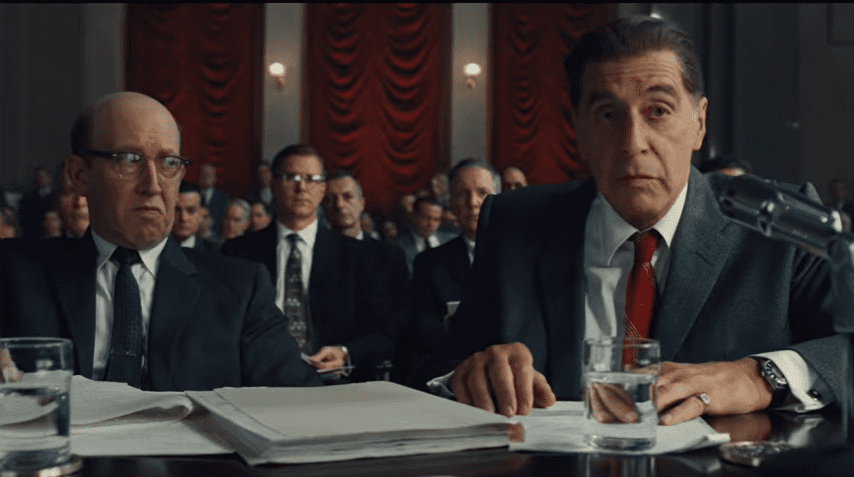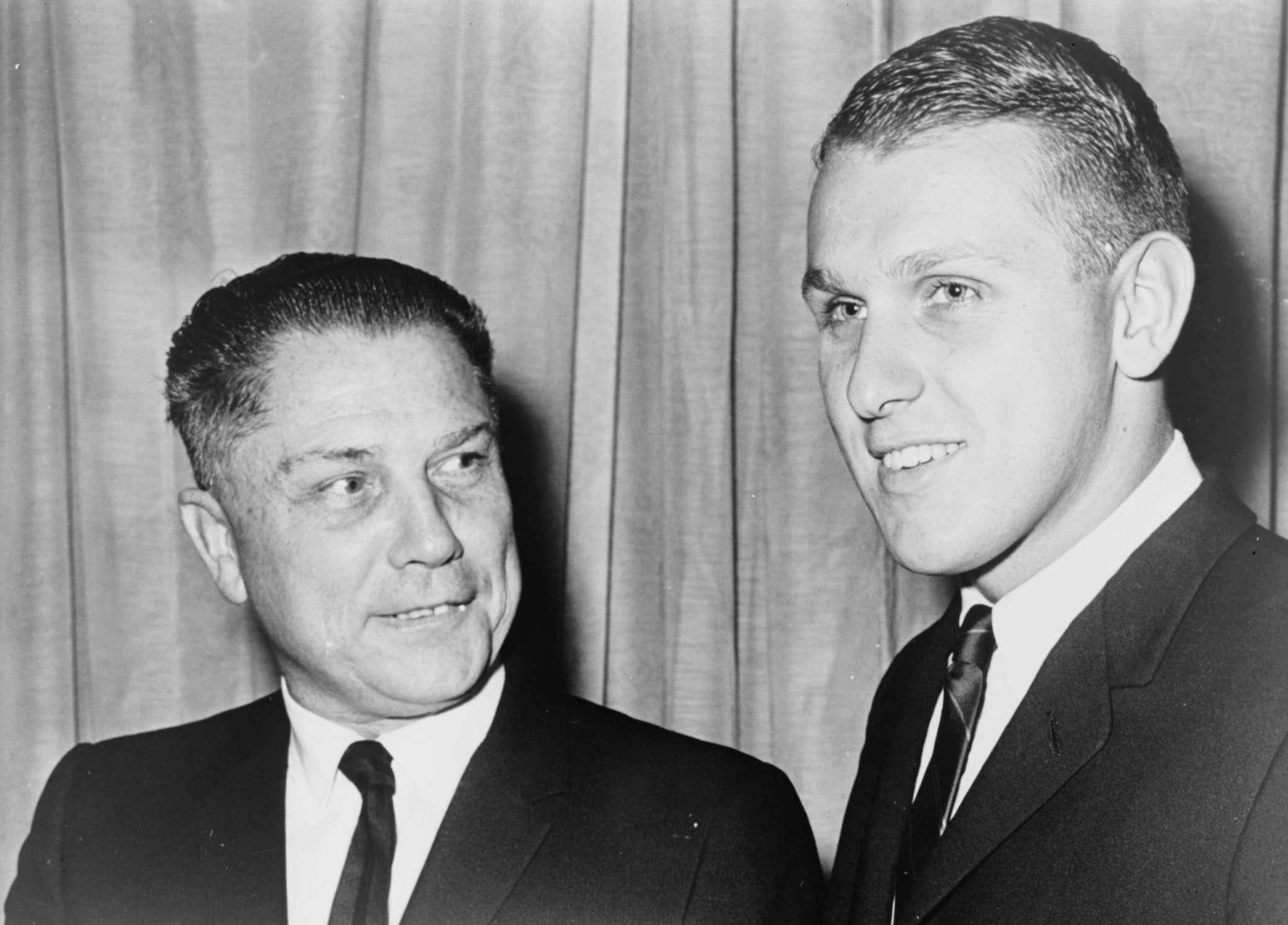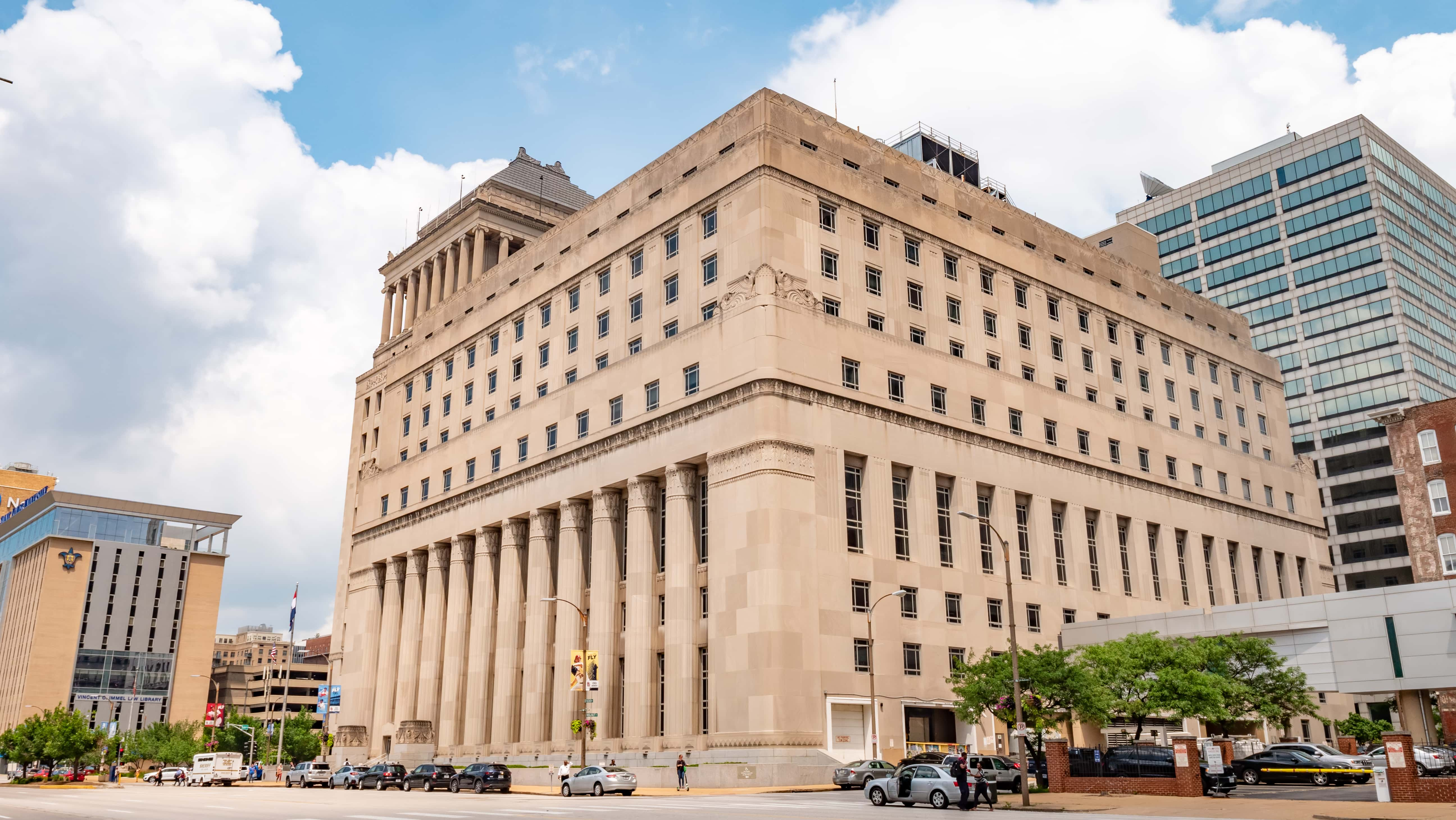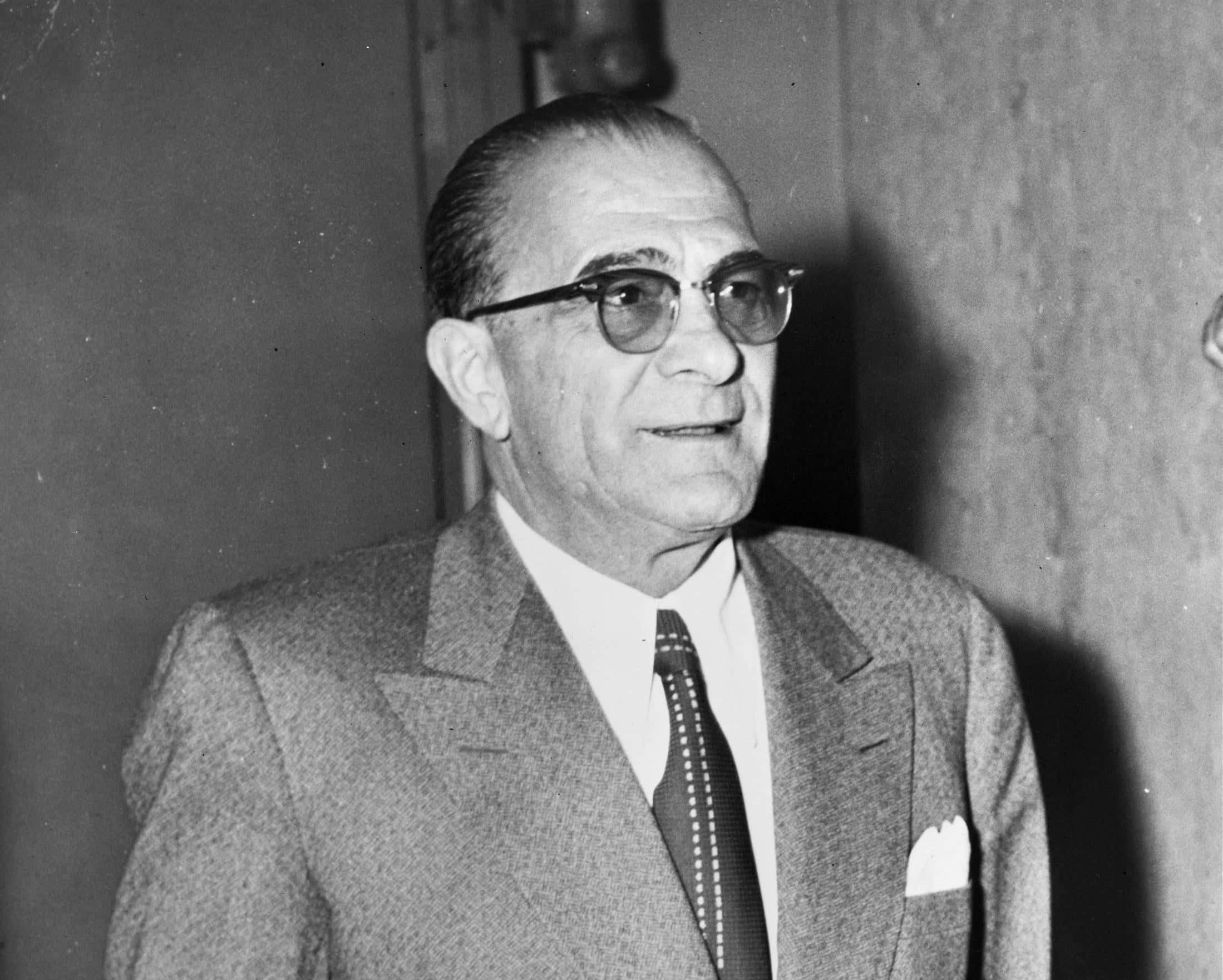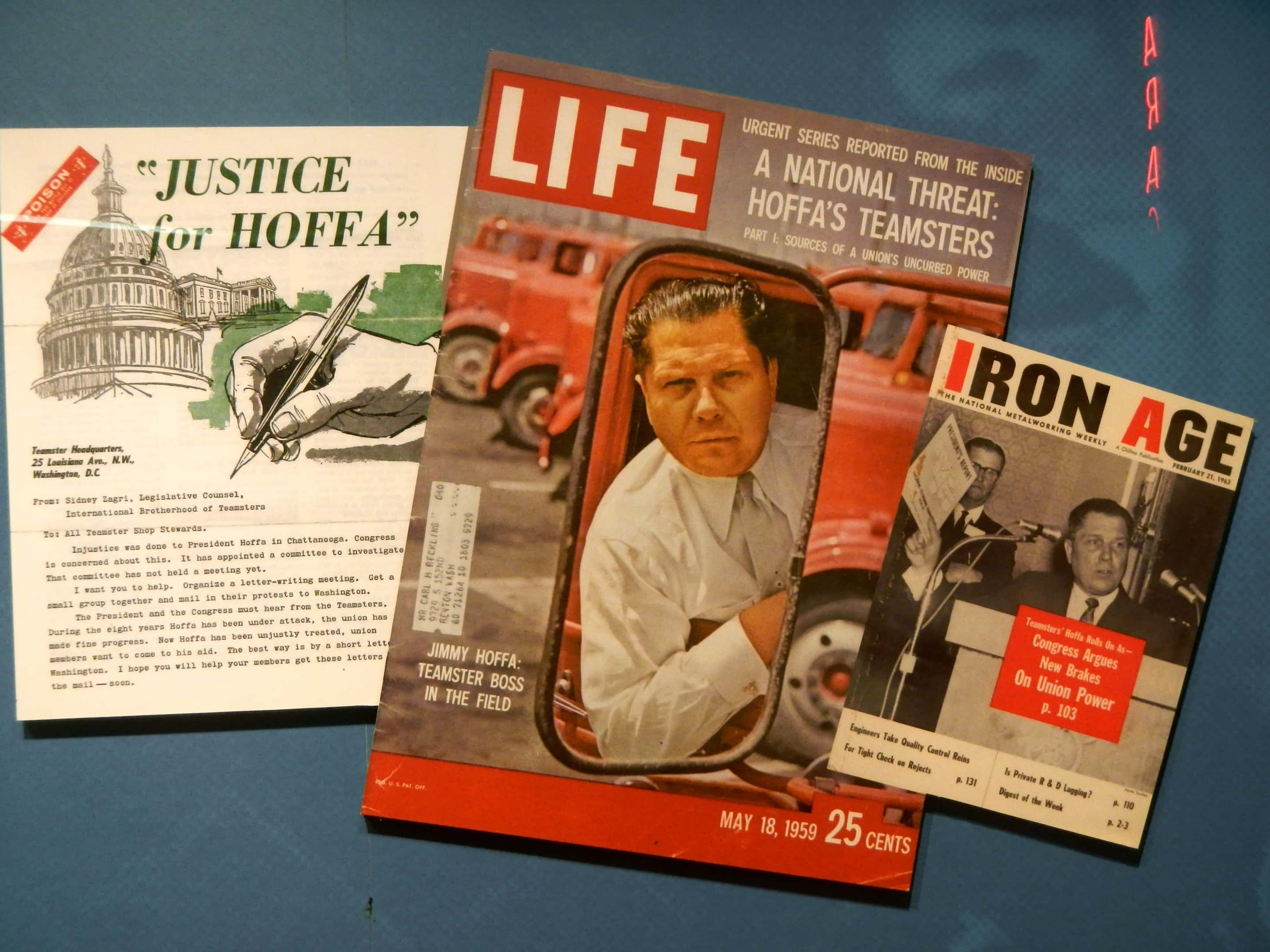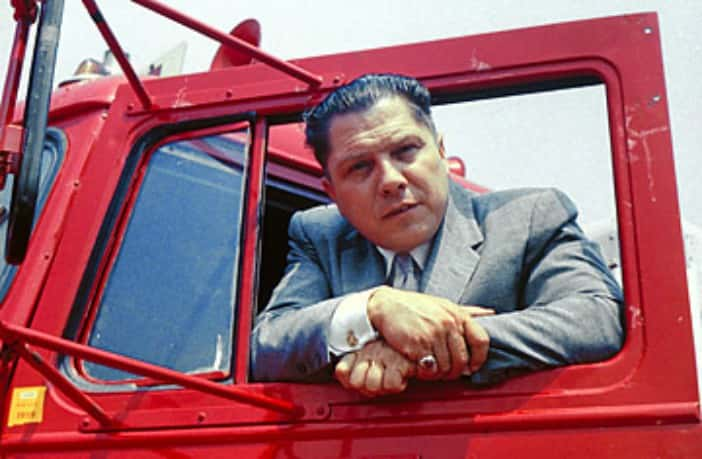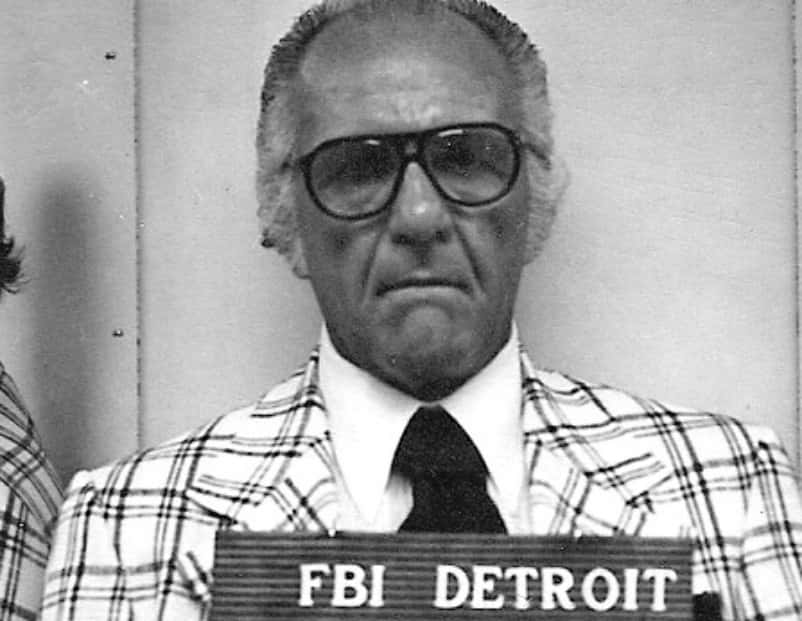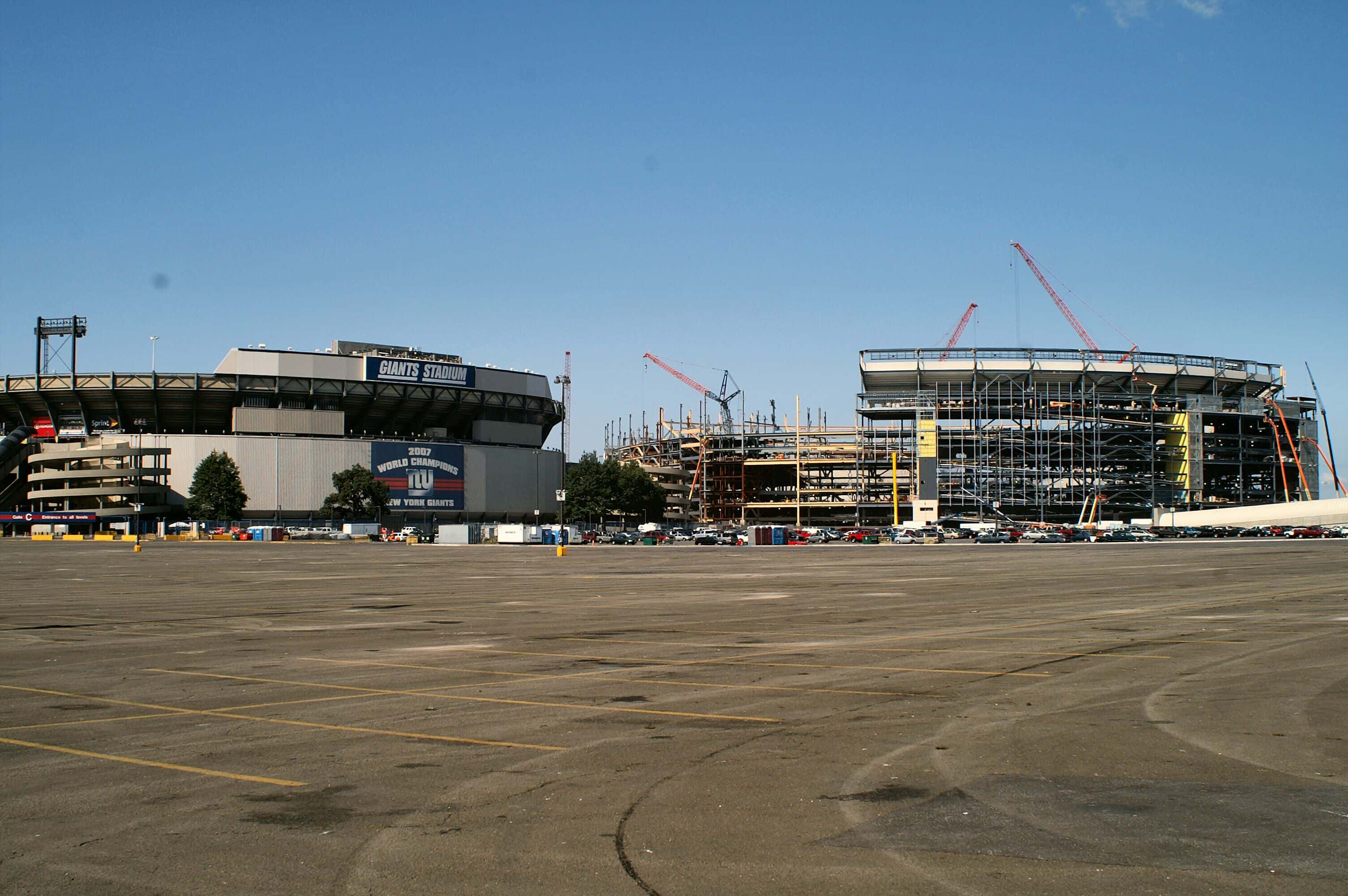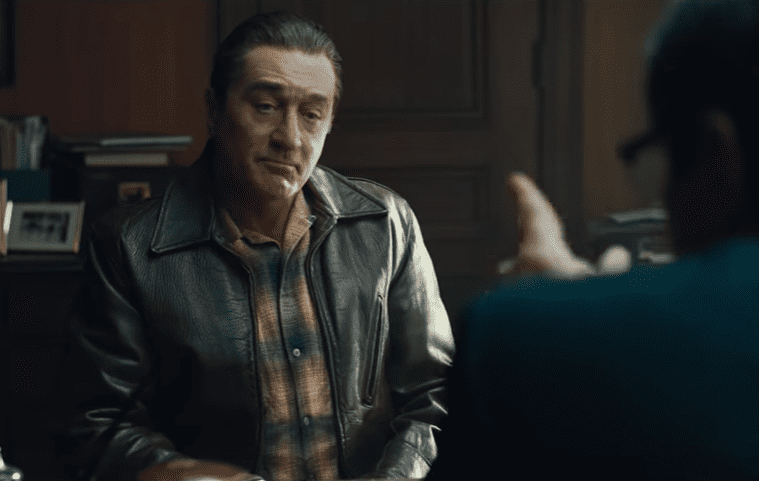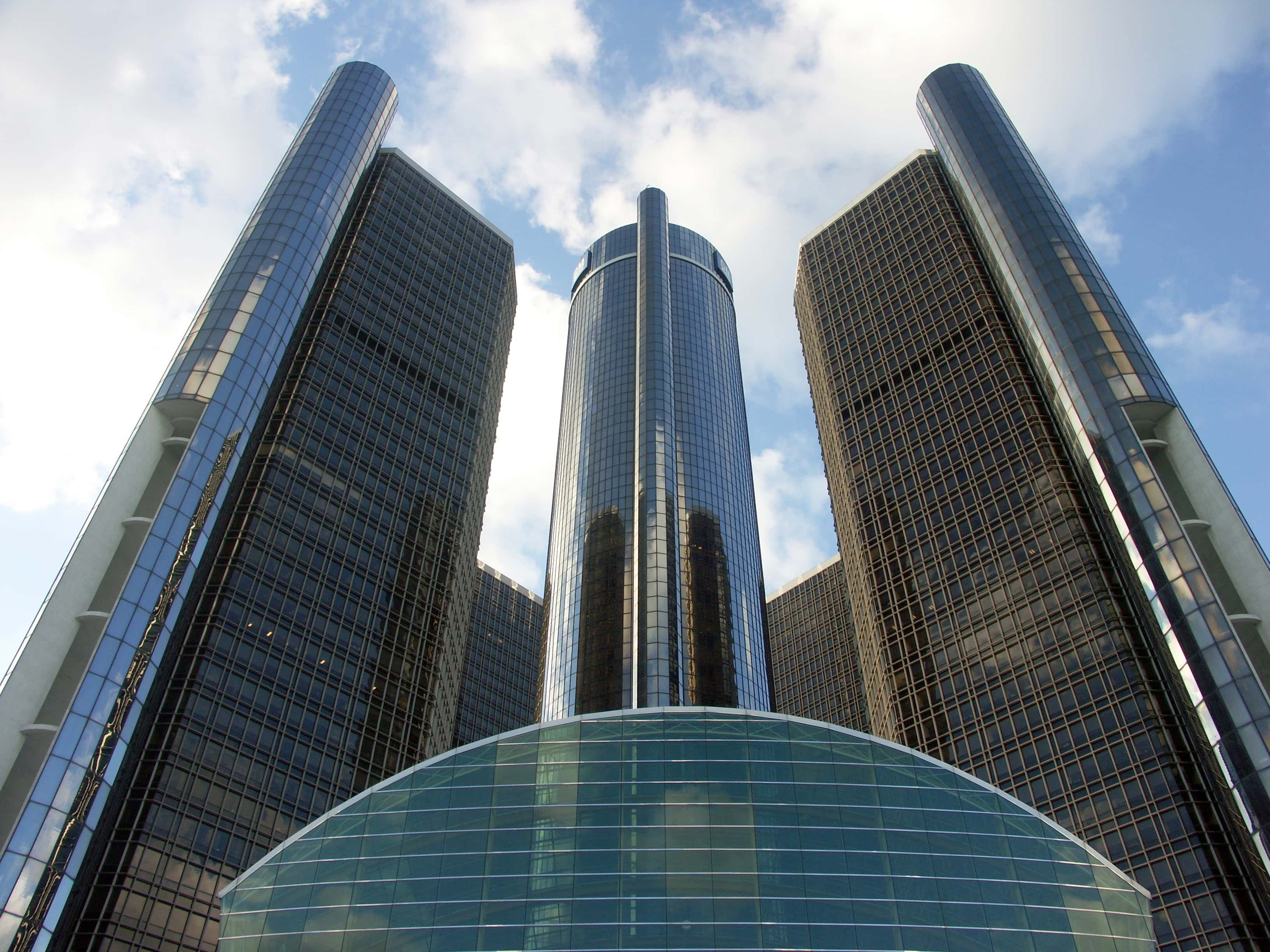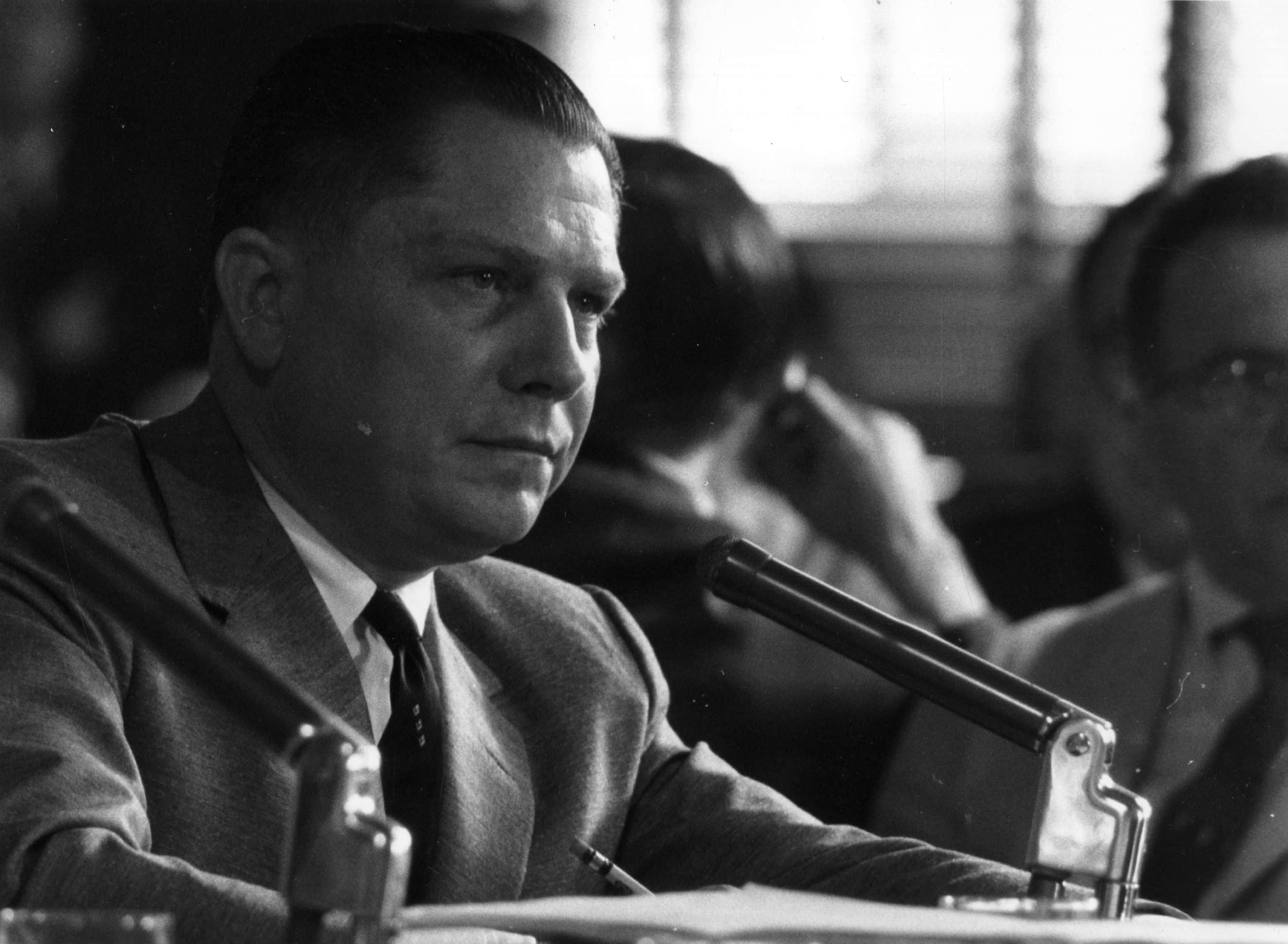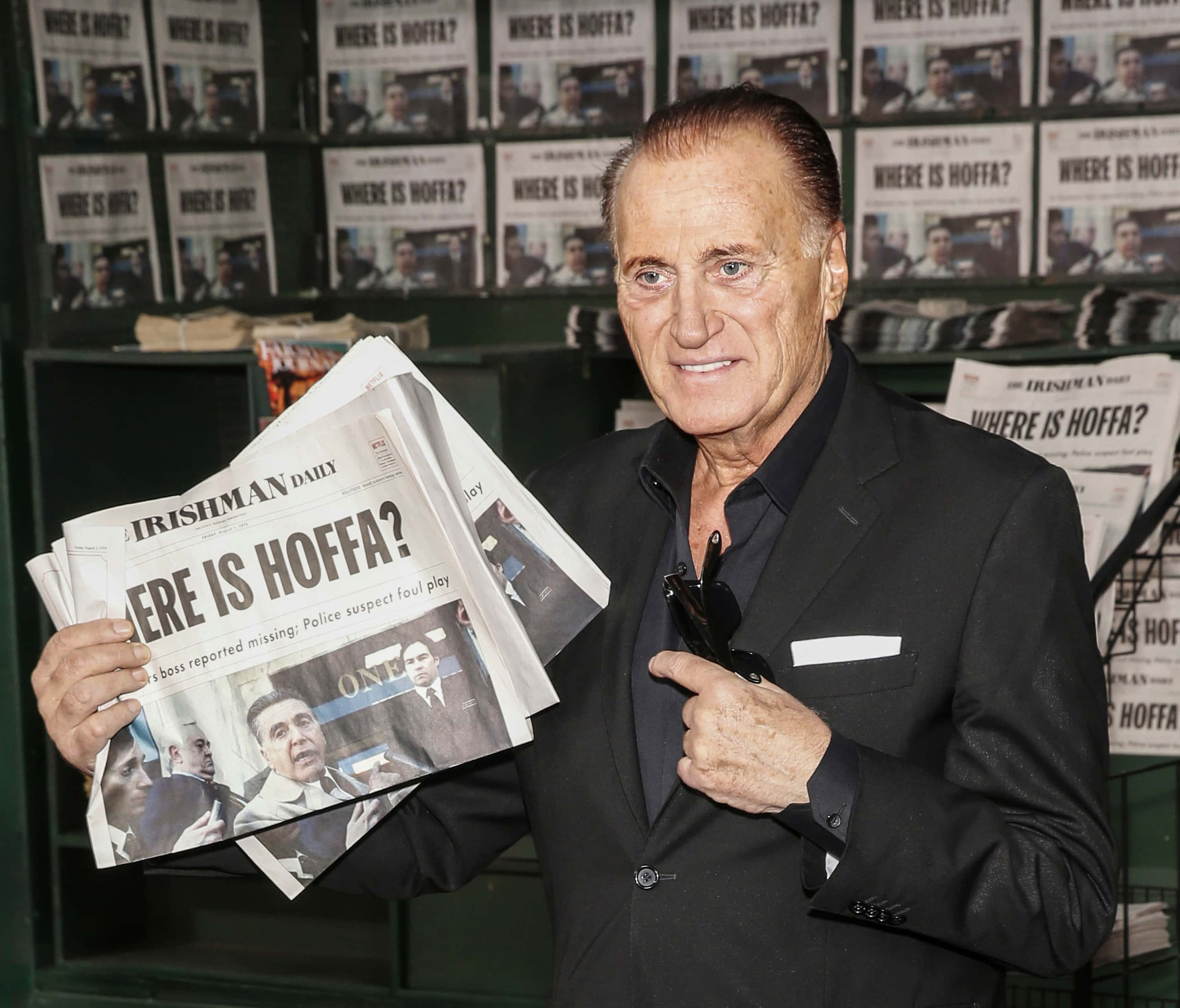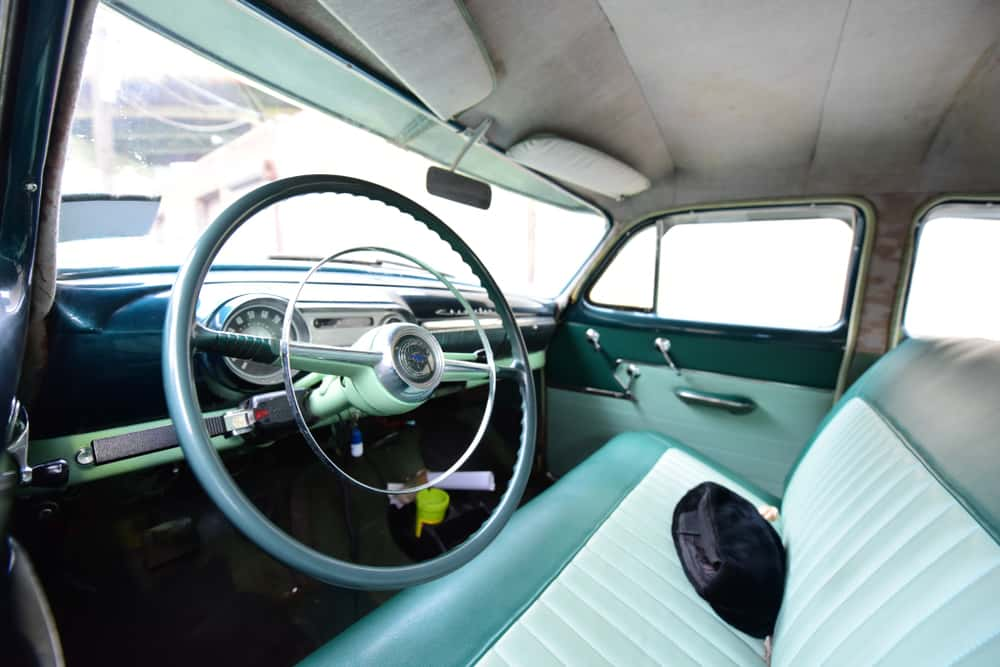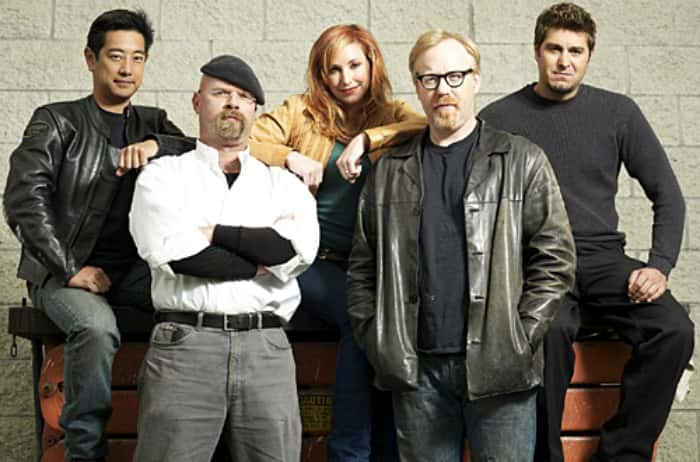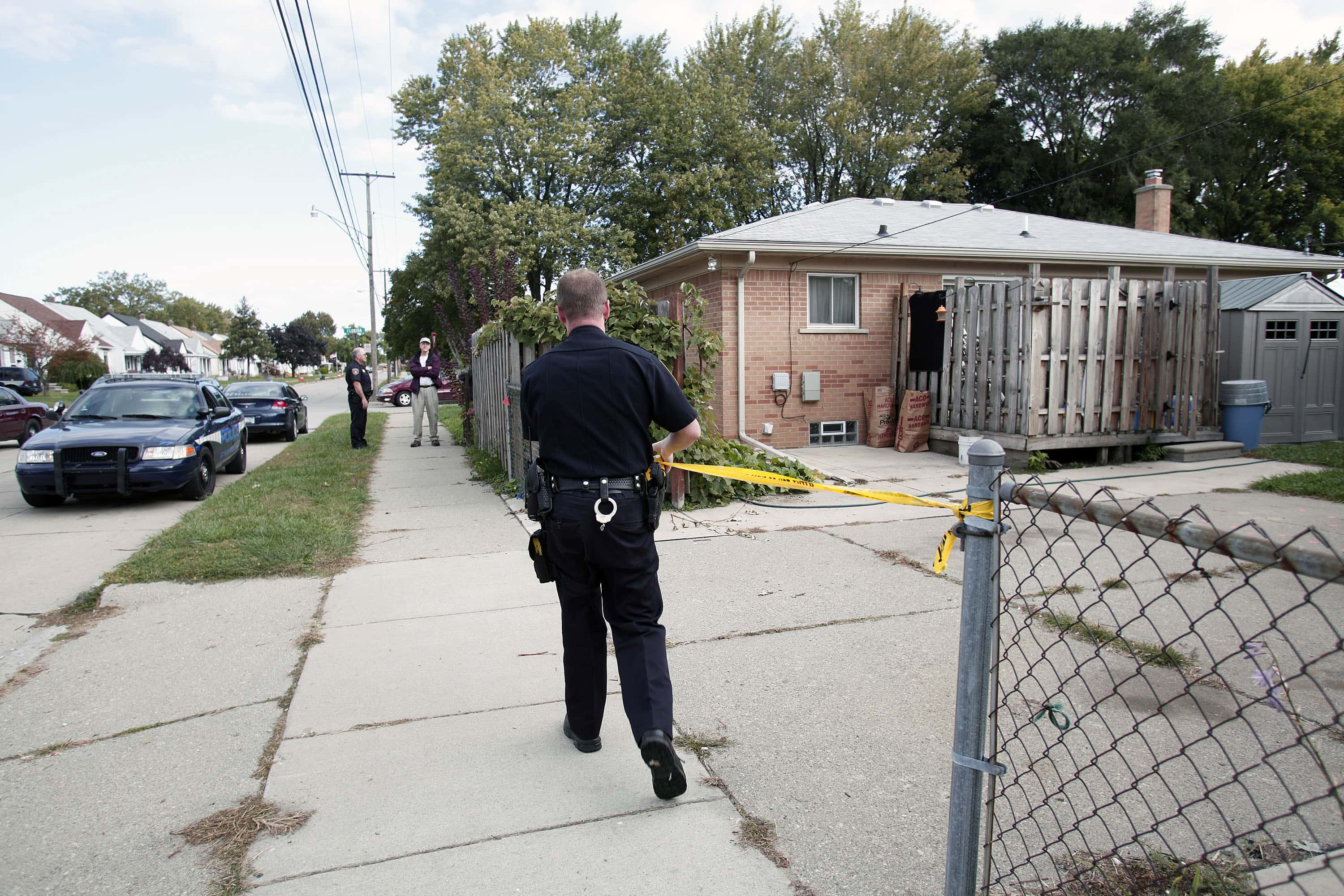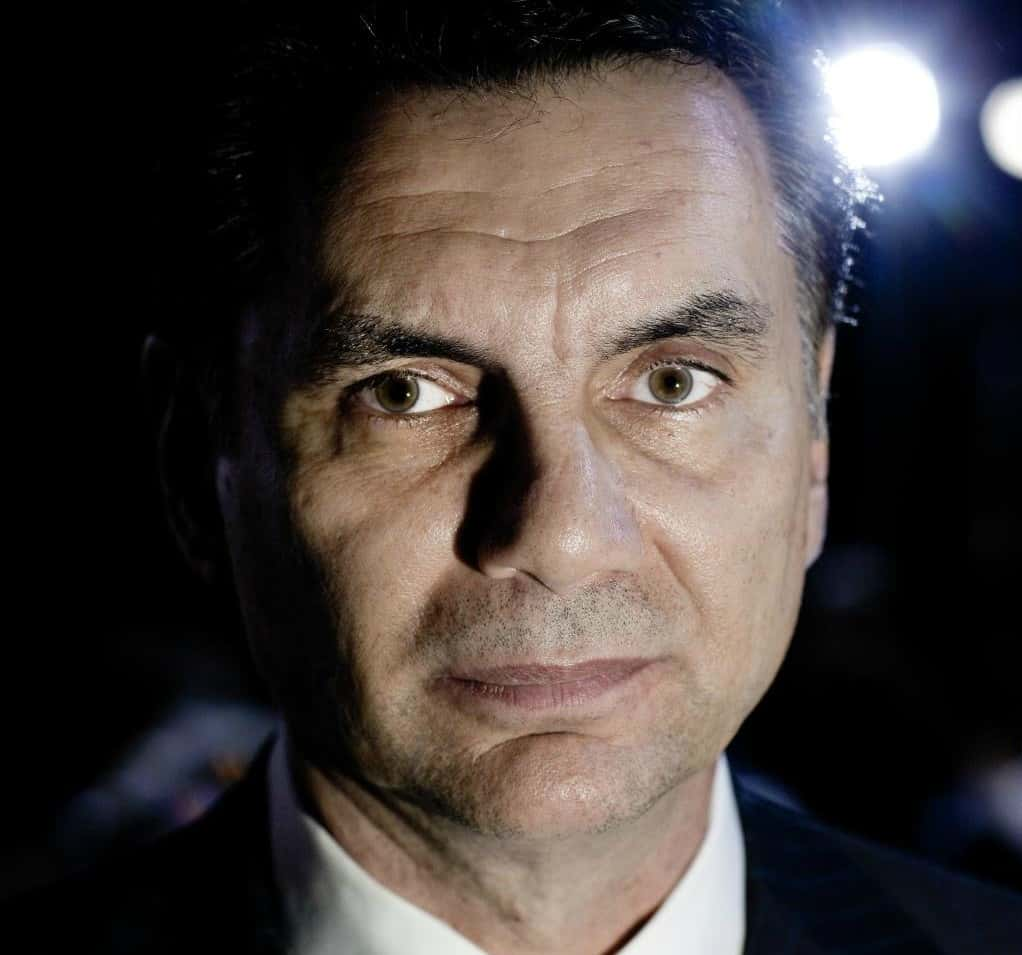Few missing persons’ cases have garnered as much intrigue and attention as the case of Jimmy Hoffa. Although he disappeared over 40 years ago, investigators both professional and amateur alike remain fascinated with exactly where Hoffa went, and how exactly he vanished without a trace. We may never know what actually happened to Hoffa, but there are a lot of theories and even some recent stories that help us shine a faint light on what might have happened to the union kingpin Hoffa. Here are 42 facts about the missing man himself, Jimmy Hoffa.
1. Origin Story
Jimmy Hoffa was born James Riddle Hoffa on Valentine’s Day 1913 to parents John and Viola Hoffa. The Hoffa family moved from Indiana to Detroit, Michigan when Jimmy was just a young boy.
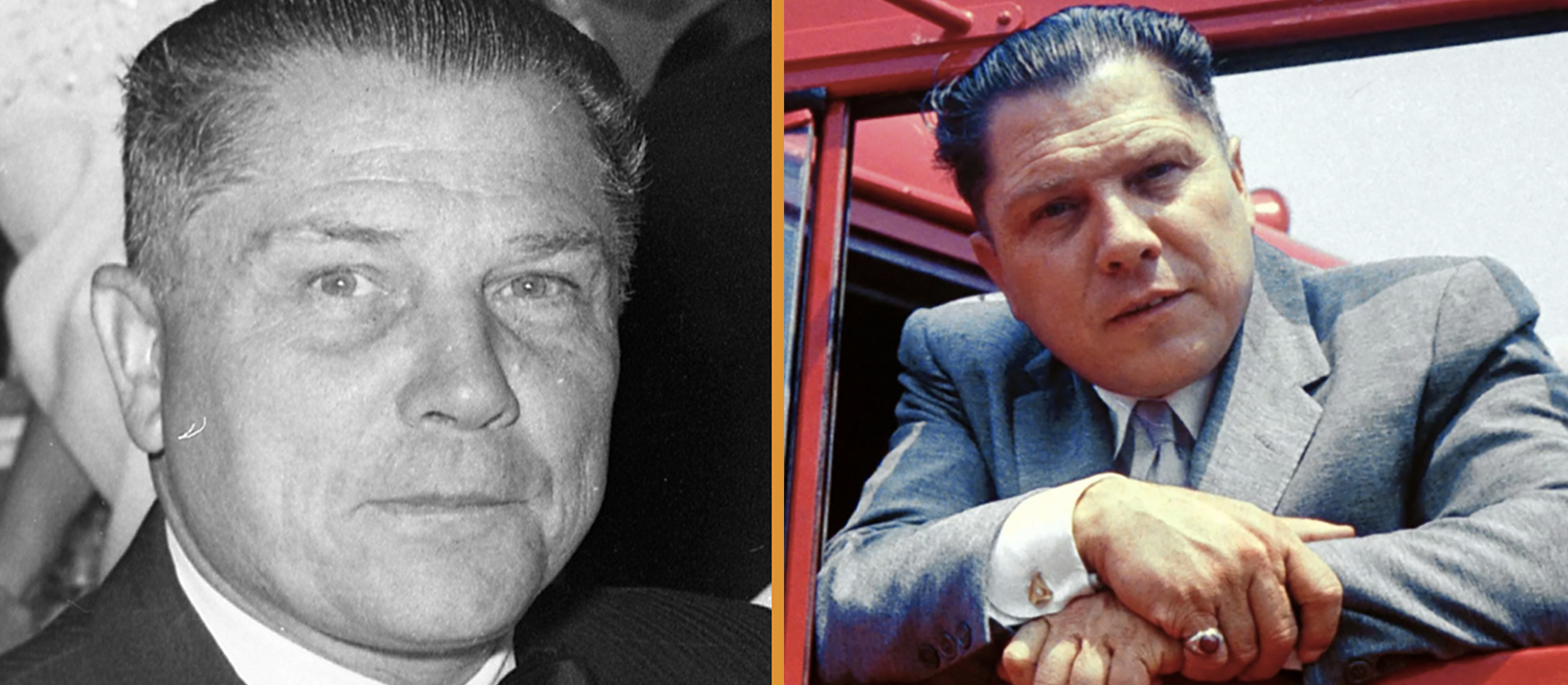
2. Union Man
Jimmy Hoffa made a name for himself as the president of the International Brotherhood of Teamsters (IBT) for 14 years. He was actually a union activist for most of his life.
 Wikimedia Commons, Another Believer
Wikimedia Commons, Another Believer
3. Rallying the Troops
In order to support his family, Jimmy Hoffa dropped out of school and started working at the age of 14. It was when he found work at a local grocery store that he became interested in workers’ unions. His managers at the grocery store were abusive, underpaid their workers, and wouldn’t ensure any form of job security for Hoffa or his colleagues.
Young Hoffa had a big problem with that and rallied the employees to unionize. His courage got him a leadership role, but sadly, his hard work didn’t change the harsh conditions.
4. Accepted
In 1933, Jimmy Hoffa was accepted by the Teamsters Local 299 union as an organizer shortly after leaving the grocery store.
5. Avoiding Conviction
Jimmy Hoffa had many gang ties, and there were many attempts to get him out of the picture as IBT leader as a result, but none were successful. When John F. Kennedy got elected, however, things changed. Kennedy’s brother Robert, who was Attorney General at the time, set up a “Get Hoffa” squad to take the man down, which consisted of investigators and prosecutors.
It was ultimately a success.
6. Crime Don’t Pay
In 1964, Jimmy Hoffa was convicted of attempted bribery, fraud, and jury tampering.
7. Thanks, Nixon
After being found guilty of his offenses, Hoffa was sentenced to 13 years in prison. He was imprisoned in 1967, but released after only four years. Hoffa had arranged a pardon agreement with then-president Richard Nixon. One of the conditions was that he resign as union president.
8. A Change in Support
After Hoffa’s release in 1971, the IBT (International Brotherhood of Teamsters) endorsed Nixon’s re-election. This was a big change for the IBT, as they had previously only supported Democratic nominees. This was doubtlessly controversial, but soon after, even more controversial rumors began to spread like wildfire.
It was alleged that Nixon was paid $1 million or more to release Hoffa and get the support of the IBT.
9. Regain Control
Jimmy Hoffa was forced to resign from his IBT presidency as part of his deal to get out of prison, but he wasn’t going to let it go that easy. Hoffa planned to get back to the top of the union no matter what it took. This was a move that some mob figures weren’t exactly fans of, and they threatened him when he brought his plan to light.
This disagreement almost certainly ended up becoming a factor in his disappearance.
10. Betrayed
In 1964, Hoffa’s first arrest and trial was for attempting to payoff a grand jury member, which gave him eight years. He was ratted on by close associate and teamster Edward Grady Partin, who let the FBI in on Hoffa’s wrongdoings.
11. Inspired by Tragedy
Hoffa’s father lost his life to lung disease. He had worked as a coal driller, and at the time, people working in coal mines were among the most abused in the workplace. Safety was often shirked in favor of speed. It’s no wonder Hoffa wanted change for workers.
12. Lump Sum
Jimmy Hoffa was paid a $1.7-million lump sum pension upon his release from prison. This was the first time a union had done this. That’s a lot of cheddar!
13. Questionable Guy, Great Leader
During his time with the IBT, Hoffa helped the union grow exponentially, from 75,000 members at his start to 170,000 after only a few years of leadership. By 1951 the union reached 1,000,000 members, solidifying Hoffa as a key member. He was known extremely well throughout the trucking industry.
 Wikipedia, AgnosticPreachersKid
Wikipedia, AgnosticPreachersKid
14. Taking the Throne
Hoffa’s son, James P. Hoffa, became the president of the IBT in 1999, defeating Ron Carey, who wasn’t exactly a big fan of Jimmy Hoffa. He probably wasn’t too impressed to see another Hoffa take the throne.
15. Hoffa on the TV
Hoffa has been portrayed in a number of film and TV adaptations, including the film Hoffa, the series Blood Feud, and comedy Bruce Almighty. The newest and most popular adaptation to feature Hoffa will be The Irishman, with Al Pacino playing the part of the union leader.
16. Come Together
One of Hoffa’s greatest moves as union president was bringing most North American truck drivers together under the national master freight agreement.
17. Toes in the Water
Hoffa first got involved with the mob because of a turf war between IBT and the Congress of Industrialized Organizations. He enlisted some mafia members to help him scare away the competition, and from then, on he was in it for the long haul.
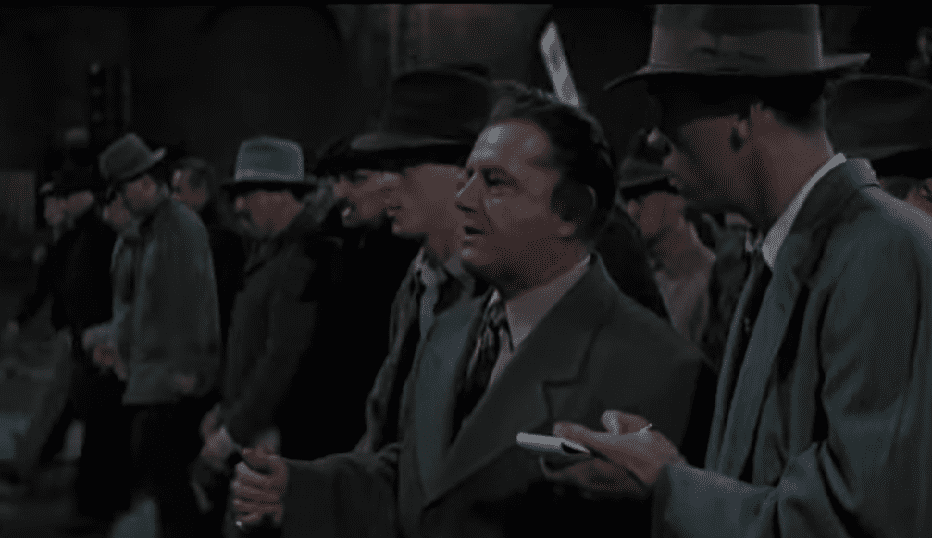 Hoffa (1992), 20th Century Fox
Hoffa (1992), 20th Century Fox
18. What a Deal!
Hoffa and his wife paid only $6,800 for their house in Northwest Detroit. I’m sure that was a lot more back then, but come on!
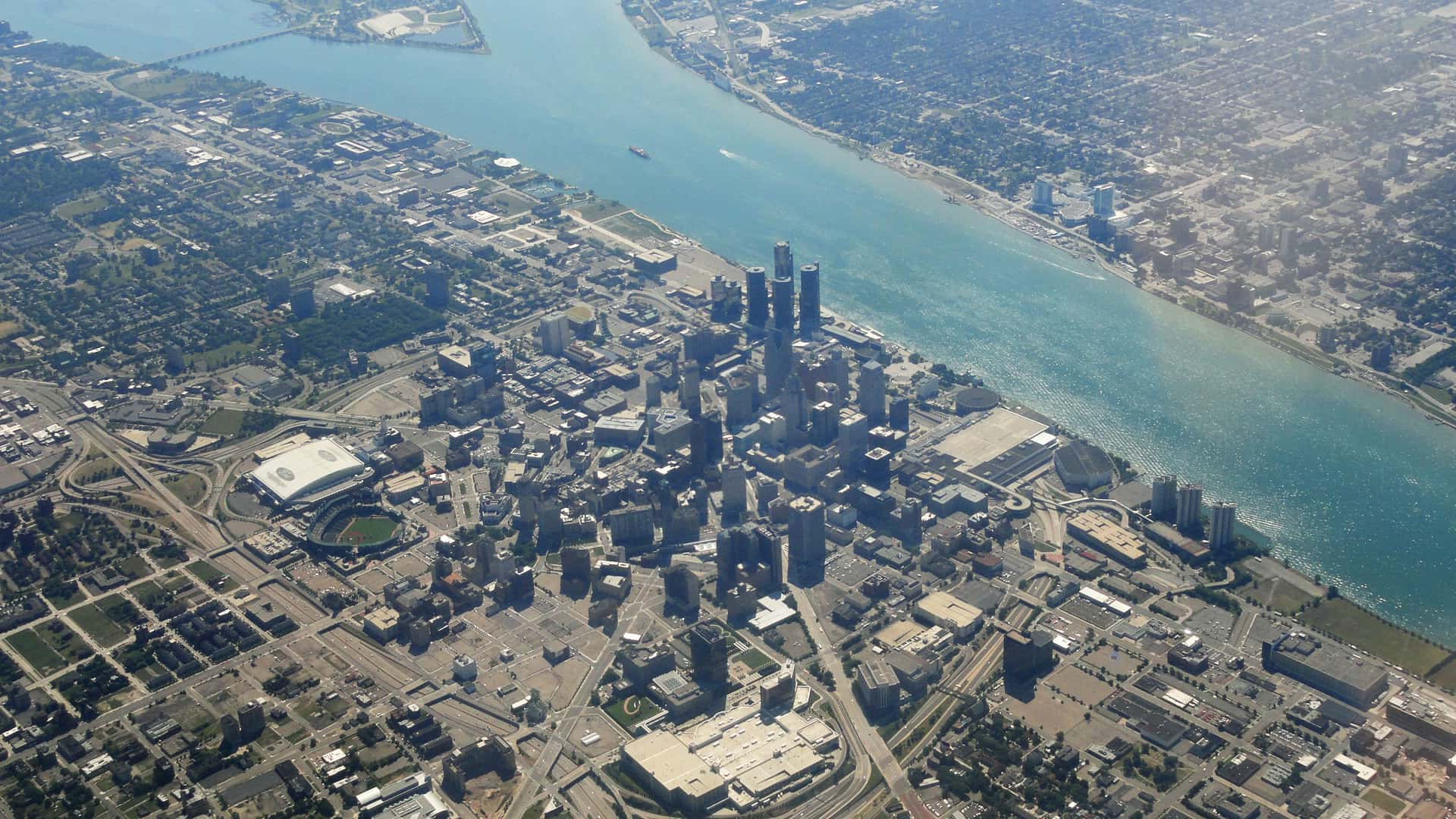 Wikimedia Commons, Barbara Eckstein
Wikimedia Commons, Barbara Eckstein
19. Pensions for All
One of Hoffa’s most well-known acts involved illegally loaning out large pension funds to mafia leaders, as opposed to the people who actually deserved them. For this, he was given five additional years on top of the eight he was already facing for bribing a jury member.
20. Similar Interests
Hoffa was married to laundry worker Josephine Posyzywak for much of his life. He met her at a non-unionized strike for laundry workers. They had two children together and were happily married until Hoffa's disappearance.
21. Smart Girl
Hoffa’s daughter Barbara is very involved in judicial work. She was the Associate Circuit Judge in the Missouri Circuit Court from 1992-2008, and an Assistant Missouri Attorney General of Civil, Disability and Workers’ Rights Division up until 2011. Those are some lengthy titles, so they must be pretty important.
22. Deadly Unions
While he may have been a union man, he was associated with much less noble activities on the side. From early on in his time with the IBT, he became involved in gang business—in particular, with the Genovese family.
Vito Genovese
23. Famous Ghost
Despite all his contributions to the union, Hoffa is most well known for his disappearance. On July 30, 1975, Hoffa disappeared and was never seen again. He was in the Machus Red Fox Restaurant parking lot, where he was meeting with some well-known mafia leaders who had ties to the IBT.
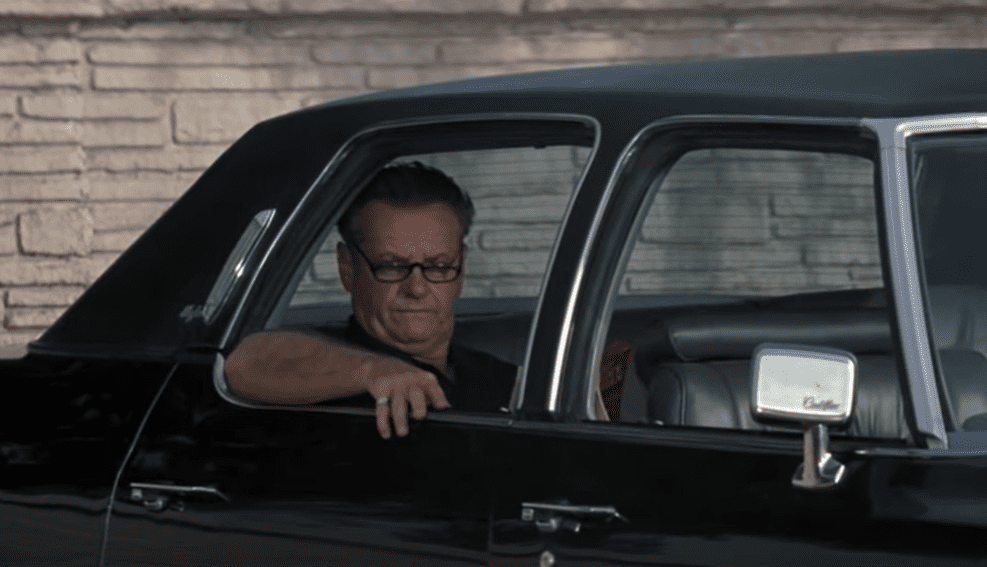 Hoffa (1992), 20th Century Fox
Hoffa (1992), 20th Century Fox
24. Late Release
Shortly after his disappearance, Hoffa’s autobiography Hoffa: The Real Story was published.
25. Seen but Not Found
A truck driver claimed to have seen Hoffa right before his disappearance. Allegedly, Hoffa was sitting in the backseat of a car with someone else, a long object (presumably a weapon) covered in between the two. Despite this information, Hoffa was never found.
26. One Last Call
When Hoffa got to the restaurant where he disappeared, Tony Giacalone, the mafia member who he was supposed to meet with, was nowhere to be seen. Hoffa called his wife from a payphone complaining about being stood up. He then called another mafia member to complain about Giacalone being late. After that, nobody heard from him again.
27. Psychic Visions
Hoffa’s daughter Barbara claimed she had a vision of her dad the night he went missing. In the vision, she saw him wearing a dark polo shirt, slumped over. This led her to believe that he was already deceased.
28. The Old Ball Game
There are a few theories about what happened to Jimmy Hoffa. One of the most popular theories was that he was dismembered and buried in the cement at the old Giants Stadium in New Jersey. The FBI was not convinced of this theory, however, and didn’t even check the site (section 107 specifically) when the stadium was demolished.
29. Sky Diving
One of Hoffa’s associates in crime, Joseph Franco, claimed that Hoffa was pushed live out of an airplane over the Great Lakes. Franco was known to law enforcement as an extortionist, leg breaker, and hired killer, so he was probably pretty capable of taking Hoffa out.
30. The Irishman
Mafioso Frank Sheeran, a friend of Hoffa’s known as “The Irishman,” has claimed that he took Hoffa's life. He said that Hoffa was shot and his remains were cremated in Detroit. This story makes the basis for Martin Scorsese’s 2019 film The Irishman, with Robert De Niro portraying Frank Sheeran.
31. A Concrete Theory
Marvin Elkind, who used to be a part of the mafia, claims that Hoffa was shot and buried in wet concrete at Detroit’s Renaissance Center. He said, “practically every union carpenter in and around the city was called in to rush the construction of wooden forms needed for pouring concrete at the Renaissance project". Spooky, but not quite concrete enough to get people to look into it.
32. Presumed Dead
Investigations into Hoffa’s disappearance went on for years, but in 1982 he was legally declared “presumed dead". Many still wonder where exactly Hoffa’s remains ended up.
33. Grief Kills
For Hoffa’s family, his disappearance was just the start of their nightmare. Hoffa’s wife Josephine died shortly after he went missing. Her kids claimed that she succumbed to fear and grief due to her husband’s disappearance. It doesn’t get much more tragic than that.
34. Can’t Say
FBI agent Kenneth Walton claims to know what happened to Hoffa and who was involved, but he can’t say. He said, "I'm comfortable I know who did it, but it's never going to be prosecuted because [...] we would have to divulge informants, confidential sources". What a tease.
35. DNA Means Nothing
The FBI found a DNA match to Jimmy Hoffa’s hair in known mob figure Charles O’Brien’s car—the same car that a witness claimed to have seen Hoffa leaving the restaurant in. O’Brien had long denied being involved in the disappearance. Although the DNA was a match, it does not reveal when the hair was left in the car.
Hoffa and O’Brien were known associates, so it doesn’t necessarily prove anything.
36. Myth Busted
The Mythbusters once looked into the disappearance of Hoffa, going as far as scanning the area of Giants Stadium where Hoffa was meant to have been buried. They found no signs of a body, effectively busting the myth.
37. Wrong Blood
Blood was found and tested in the house of Frank “The Irishman” Sheeran, who was long suspected of murdering Hoffa. The blood, however, was not a DNA match. Just some other person’s blood, no big deal.
38. Eaten by Gators
One theory says that Hoffa was ground up at an ironworks, put into a drum, and shipped to the Everglades. Once there, his remains were thrown to the alligators, which he was partially digested by. There’s not much evidence to support this, but it’s one of the more interesting theories out there.
39. Adding Insult to Injury
Perhaps the most insulting theory is the one that says Hoffa was stabbed in the head, put in a drum, set on fire, buried, dug up, and then crushed into a cube with a car. The car was then shipped to Japan and recycled for scrap metal in new cars. Hoffa would not have liked that.
40. The Investigation Continues
Although he was declared deceased in the 80s, people have not let up trying to find Hoffa. In 2012, the authorities tested ground samples from under a driveway in Detroit where someone claimed they saw a body being buried around the time of Hoffa’s disappearance. No evidence of human remains was found…unfortunately? Fortunately? We’ll go with fortunately.
41. A Shallow Grave
In 2013, mafia man Tony Zerilli said Hoffa was buried in a shallow grave in a field in Michigan near the restaurant he was taken from. The FBI looked into it, but after three days of digging found no remains.
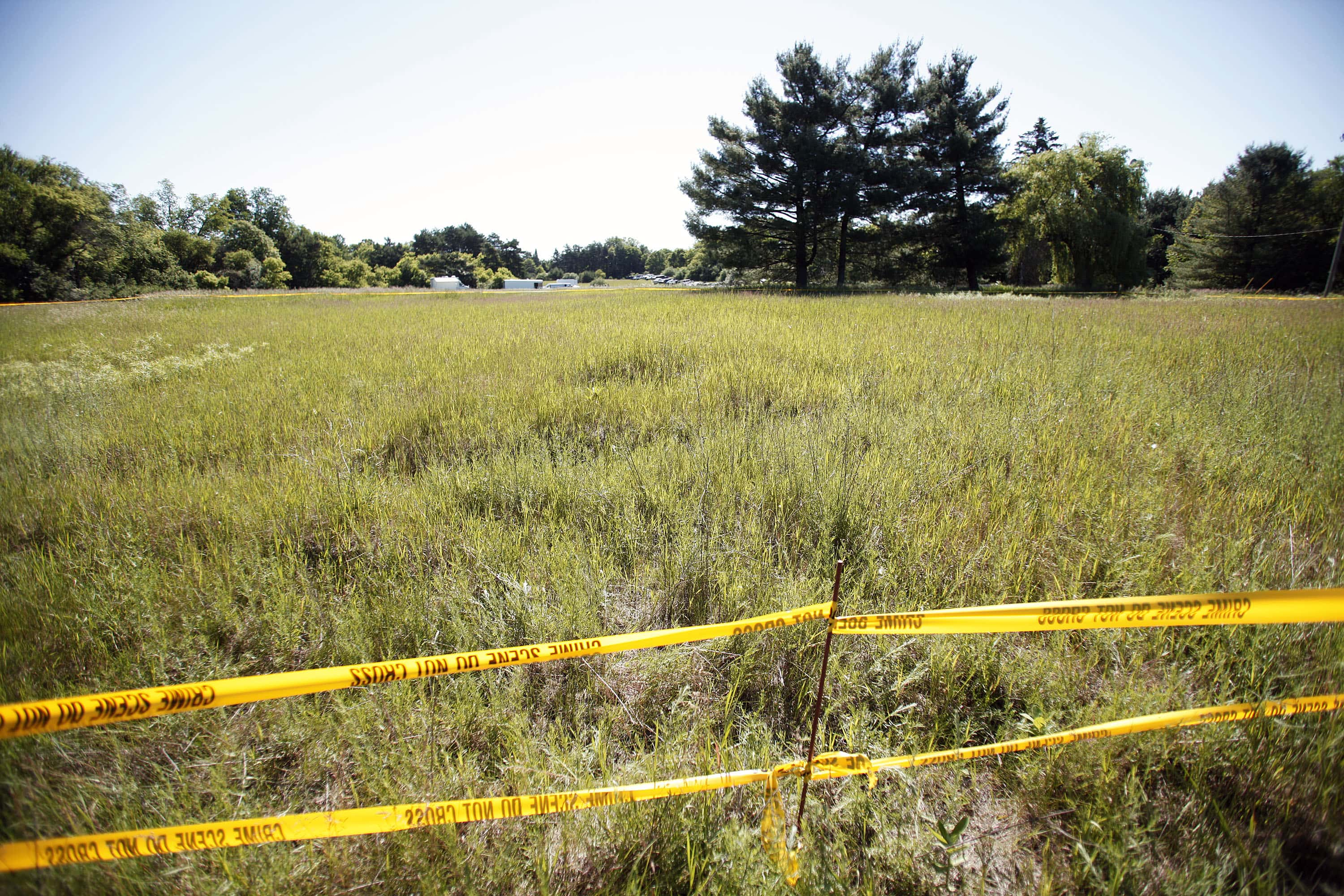 Getty Images
Getty Images
42. Swimming With the Fishes
The most recent person to claim they know the whereabouts of Hoffa is Michael Franzese, an ex-mafia member turned motivational speaker. He will not divulge the exact location of the body or who slew Hoffa, but says, “I can tell you the body is very wet,” and that the assassin is alive to this day, albeit in prison.


